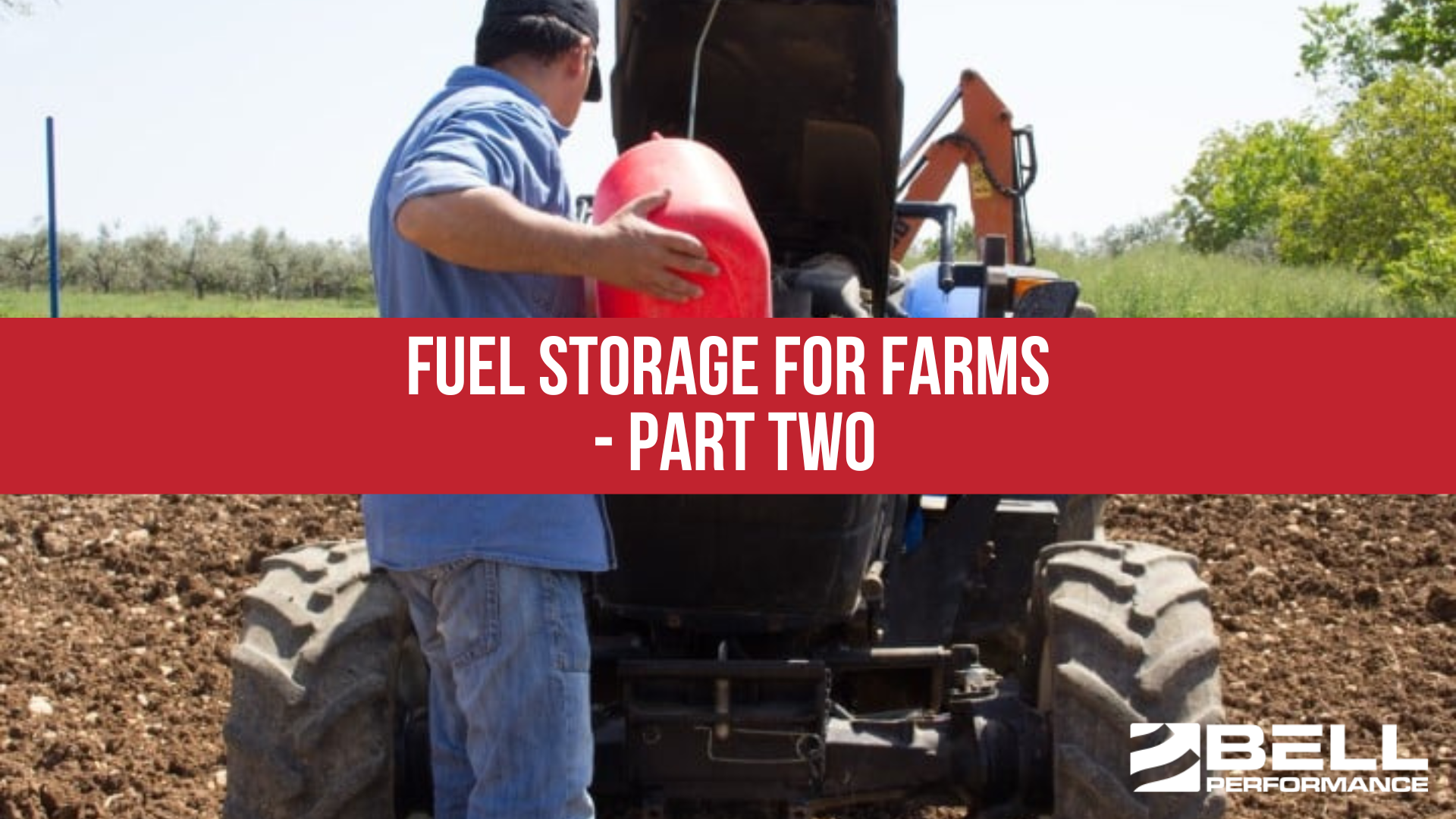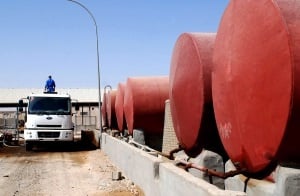Fuel Storage for Farms - Part Two
For fuel storage on farms, some kinds of storage tanks are better than others. The color, design, and tank material can all play a role in protecting...

The days when you could take diesel fuel, put it in a storage tank, and "set it and forget it" for months or years are long in the past. And they're not coming back. Today's stored diesel fuels need a stability treatment added if their quality is to be protected for longer periods.
All stored fuels are subject to the effects of oxygen, water, and catalytic metals that they are inevitably exposed to over their lifespans. Any of these elements will trigger chemical chain reactions in the fuel. Let them go unchecked for long enough and they ultimately lead to polymerization and heavy end fallout in the fuel.
That’s what happens when you see old fuel that has changed color or even stratified. Formerly soluble portions of diesel fuel have become unstable and insoluble because of these chemical reactions. Darkened fuel and the formation of sludge, gums, and varnishes are typically the result. And that's bad news for any engine trying to run on that bad fuel.
The way to keep this from happening, or to delay it for as long as possible, is by adding a fuel stabilizer before any of this happens. You add the stabilizer when the fuel is fresh, and the chain reactions never get off the ground.
Okay, so you know you need a stabilizer. But where do you get it? Maybe you go to the auto parts store (like in the photo) and you see a bunch of bottles, all talking about how great they are. Does that make your choice for you?
Given the large number of choices out there for someone considering a diesel fuel stabilizer, most people have no idea what they should be looking for or if there’s any difference in their choices. The chemistry behind stabilizers can be technical. So here are a couple of important tips on what to look for in picking the right one for you.
The first recommendation is simple - don't buy the stabilizer you need to protect your fuel investment worth $1000s (or even $10000s or $100000s) from a retail store that also sells air fresheners. First, you don't want to pay retail. Second, the only thing those stores care about is moving units. They don't care if something is any good.
The fuel stabilizers that are actually "any good" are sold directly from their manufacturers. Go to the source, not some retail place.
Stabilizer additives are rarely just one thing. The best stabilizers are packages with multiple ingredients because they need to address the biggest causes of fuel instability
You definitely should look for a stabilizer that talks about containing all of these kinds of ingredients. Such a stabilizer is going to be the most effective for what you need it to do.
Protecting fuel stability in storage is a valuable thing to do when you calculate the monetary value of the fuel itself. But there are enough options in the marketplace that it should not be expensive to use a good quality stabilizer.
The economics of treatment are most influenced by the treatment rate. The lower the treat rate, the less it’s going to cost you to get the job done. Remember that a low treat rate, in this context, means a higher number of gallons treated per gallon of stabilizer. The lower the treat rate, the more fuel it treats. That’s good. The higher the treat rate, the LESS fuel it treats. That’s bad.
Lower treat rate (more fuel treated) = GOOD.
Higher treat rate (less fuel treated) = BAD.
There’s no reason to use a stabilizer with a treat rate higher than 1:2000. This means each gallon of stabilizer should treat a minimum of 2,000 gallons of fuel. Preferably more.
Make sure you cover those two areas, and you should be able to protect your stored fuel effectively with a minimum of cost per gallon.

For fuel storage on farms, some kinds of storage tanks are better than others. The color, design, and tank material can all play a role in protecting...

The typical conditions of summer work together to decrease the effective storage life of diesel fuel. That’s especially true with ultra-low sulfur...
Though it's not as common as it used to be, sometimes you may be driving and you notice a big diesel truck belching black smoke. Any time you observe...